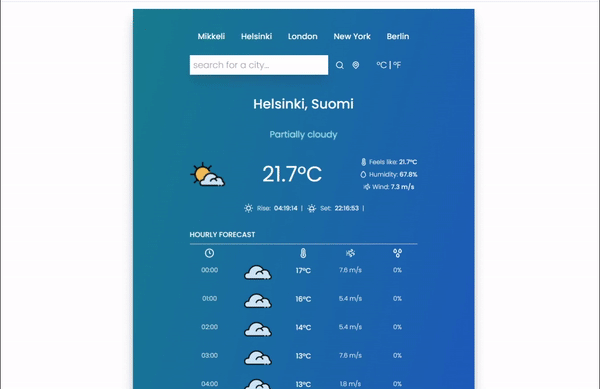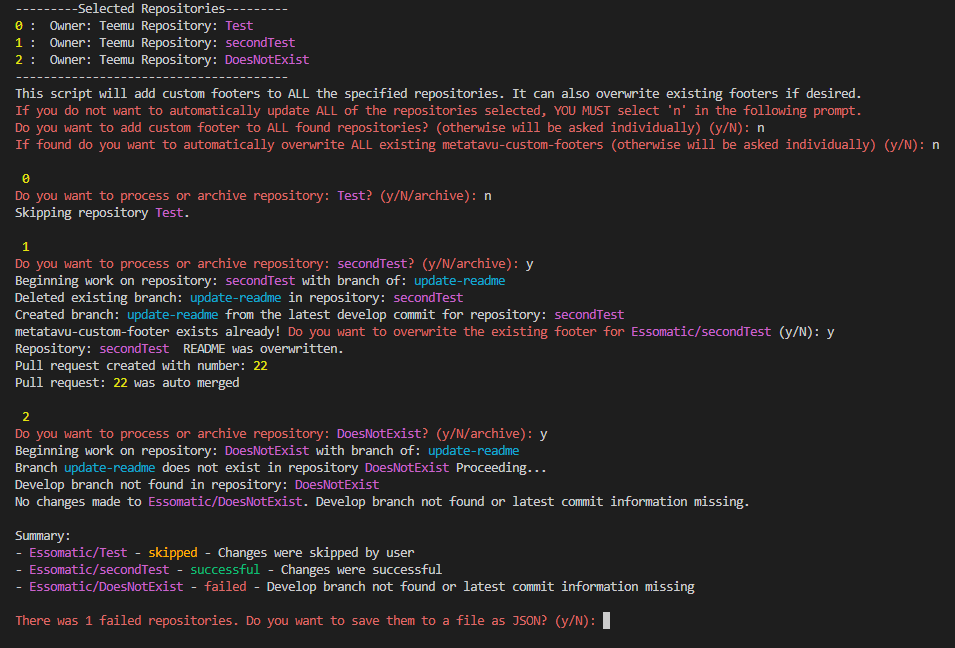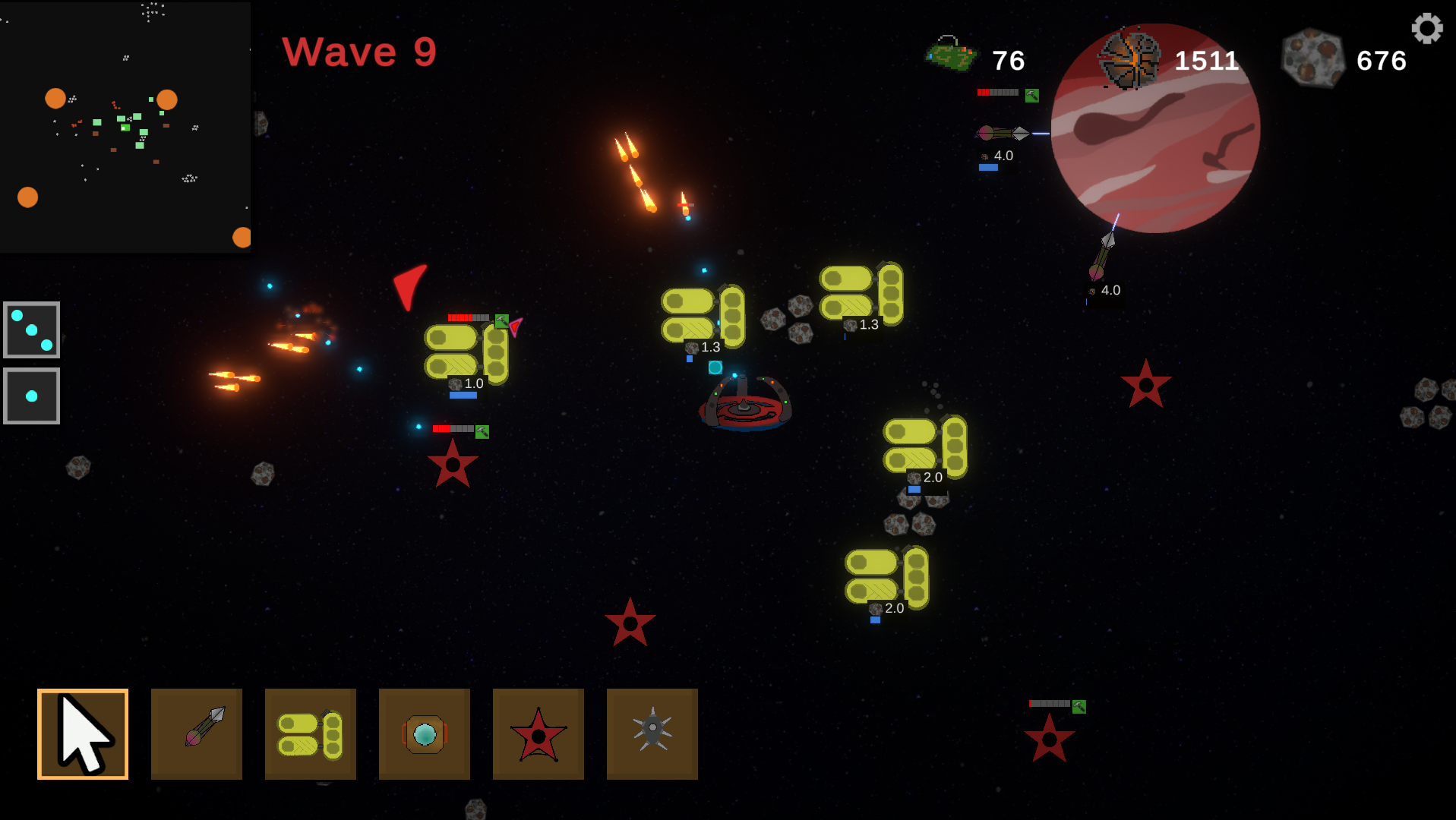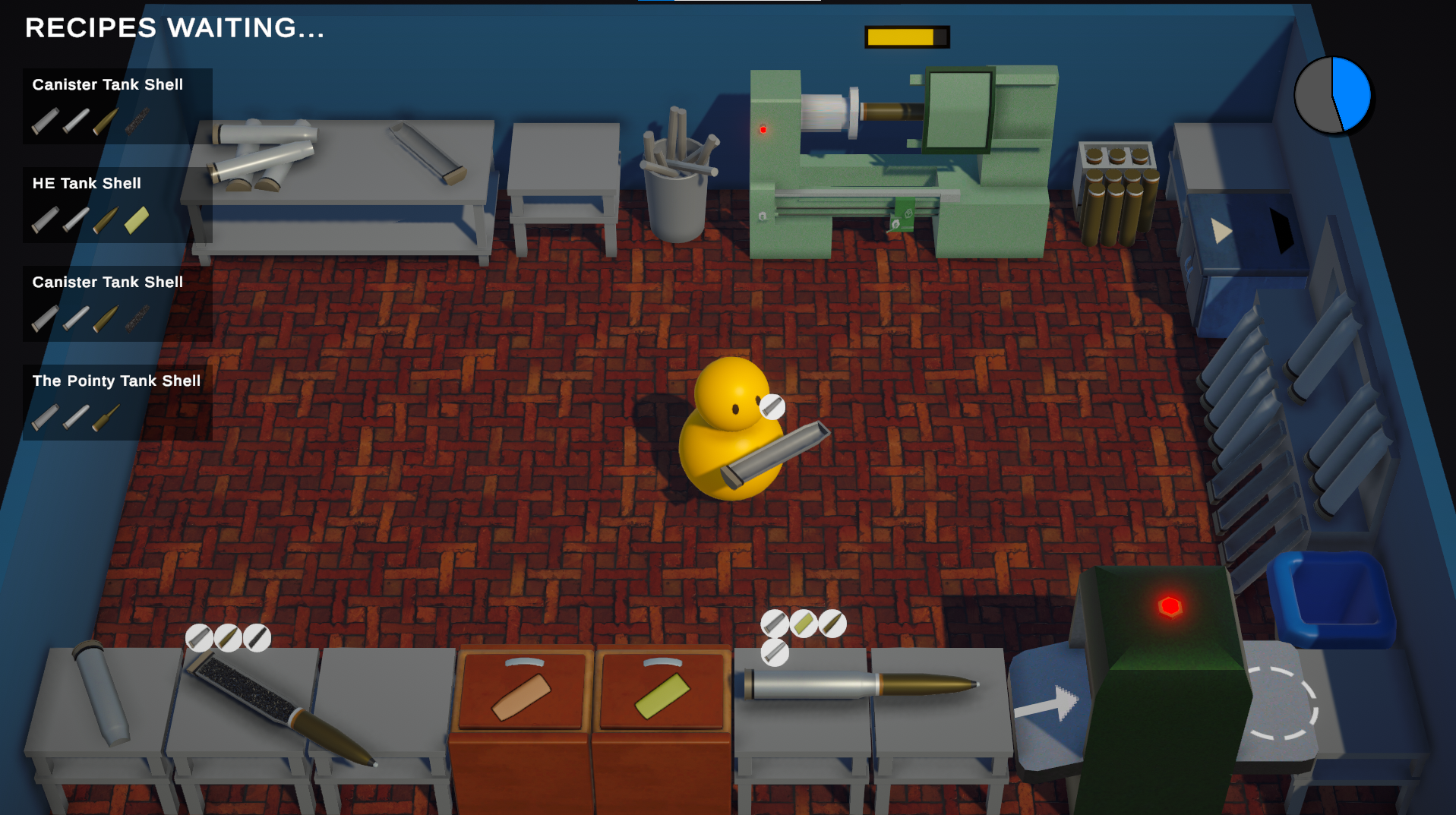Some projects worth listing
I made Super Invetory as the final project of Web technologies course at school. It is an Inventory web application that can manage several locations and their products. The front-end of the project is implemented with React, and back-end uses NodeJS, ExpressJS and SQLite database.

Buglister is a desktop application I made for personal use. It is implemented with the Electron Framework and Javascript. In the program, you can list bugs to the list and mark them as fixed or delete them completely. The file can also be saved/loaded as JSON.

Weatherapp is a project where I used a publicly available API called Visual crossing to supply weather data and I built a basic web application around that. It works on computers and mobile devices alike. You can use the application to view weather data for various locations, including the current conditions, the next 24-hour forecast, and the seven-day forecast. Frontend is using mainly React and Tailwind CSS while the backend is a basic express server.

During my internship, which was part of my studies at the University of Applied Sciences, I started and completed the GitHub Readme Footer Generator project among other things. This project was primarily intended as an internal tool for the company. It is a terminal-based tool that can fetch all the GitHub repositories of an organization and either individually or in bulk edit their README files by adding a customized HTML-based footer section at the bottom of the files. This footer includes the company's logo, links to their website, and social media accounts. The tool can also archive old repositories and detect whether a footer has already been added to a README file, allowing it to either overwrite the existing footer or skip the repository. I was the sole developer of the project, working under a senior developer who was responsible for the project's requirements and code review.

All the games on the list are done using Unity and C#
Booster is my first game. It is made to be hard and unforgiving a theme that will repeat itself in my other games. In the game you fly a spaceship that you try to land on a landing platform. There are seven levels each harder than the previous, on failure the game will start from the begining.

A game designed to make you rage. The player finds himself in an empty room and the only light source in the room runs out of battery. The player is tasked with finding a battery that is generated in a random place on the floor. After finding the battery, the player must find the lamp again, after which the game ends.

Dash is a 2D Roguelike game where the player finds himself in a randomly generated dungeon at the end of which is one of three possible bosses. The game character has three lives and a dash ability that helps in this hostile world. The player can see every defeated boss in the game's main menu. I started the project because I wanted to challenge myself and made the game without blindly following tutorials. I also gave myself a one-week time limit in which to make the game, in hindsight I am really proud of the end result.

A game where you grow your network of space stations and collect the galaxy's resources in to your own pockets while defending against waves of attacking enemies.

Ammo camp is the end result of a ten-hour tutorial series I followed. In the tutorial series we made a Over cooked-clone, i.e. a game in which the player has to prepare dishes according to the recipes within a time limit. In my own version, instead of hamburgers, the player prepares different types of Shells according to the recipes. The game's 3D models were also self-made. While working on this project I learned a lot, especially about event-based architecture, since the tutorial series emphasized clean code.

Picture Perfect Pairs is a simple memory game, it is designed to be played over the network, but there is also a singleplayer. PPP is implemented with Unity's Network for gameobjects library. The game itself is very simple in it two players flip the card according to their turn until all cards have been flipped and the player with the most pairs wins. If both parties agree a rematch can be played. With this project I specifically wanted to learn about networking code.
